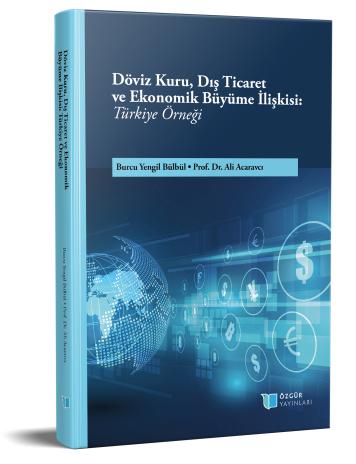
Döviz Kuru, Dış Ticaret ve Ekonomik Büyüme İlişkisi: Türkiye Örneği
İndir
Özet
1980’li yılların sonunda Doğu Almanya ile Batı Almanya arasındaki Berlin Duvarı’nın yıkılması ve arkasından Sovyetler Birliğinin dağılması ile birlikte küreselleşme eğilimi hız kazanmıştır. Daha serbest hale gelen ulusal ve uluslararası piyasalarda döviz kuru, dış ticaret ve ekonomik büyüme gibi makro ekonomik göstergeler daha fazla önem kazanmaya başlamış ve literatürde bu alanlarda yapılan çalışmalarda önemli artışlar olmuştur. Bu çalışmanın amacı, Türkiye Ekonomisinde dış ticaret hadleri ve reel döviz kurunun ekonomik büyüme üzerindeki etkisinin 2000-2018 dönemi için incelenmesidir. Zaman serisi ekonometrisi yöntemlerinin kullanıldığı analizlerde reel gayrisafi yurtiçi hasıla, reel sermaye stoku, istihdam, dış ticaret hadleri ve reel efektif döviz kuru değişkenleri kullanılmıştır. Bu kapsamda, öncelikle döviz kurları, dış ticaret ve ekonomik büyüme teorileri incelenmiş, literatür taraması yapılmış, Türkiye ekonomisinin tarihsel gelişimi kronolojik olarak irdelenmiş ve son olarak ekonometrik analize çalışmada yer verilmiştir. Ampirik sonuçlara göre; reel gayrisafi yurtiçi hasıla, reel döviz kurlarında meydana gelen artışlardan negatif etkilerken, reel dış ticaret hacminde meydana gelen artışlardan ise pozitif olarak etkilemektedir. Ayrıca dış ticaret hacmindeki artış hızı ile reel ekonomik büyüme arasında çift yönlü bir nedensellik ilişkisi söz konusudur. Bu sonuçlar, istikrarlı reel kur hareketlerinin dış ticaret hacmi ve ekonomik büyümenin sürdürülmesindeki önemine vurgu yapmaktadır.

